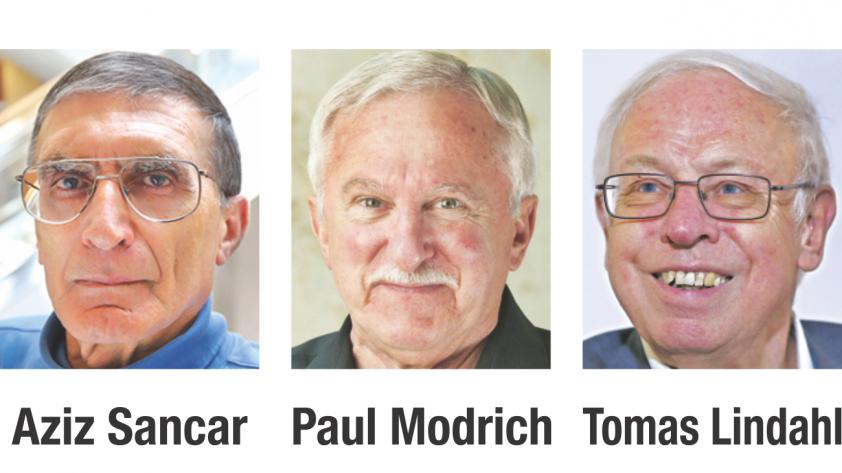Trio wins Nobel Chemistry Prize for DNA repair work

Sweden’s Tomas Lindahl, Paul Modrich of the United States and Aziz Sancar, a Turkish-American, won the 2015 Nobel Chemistry Prize yesterday for work on how cells repair damaged DNA. The three opened a dazzling frontier in medicine by unveiling how the body repairs DNA mutations that can cause sickness and contribute to ageing, the Nobel jury said.
“Their systematic work has made a decisive contribution to the understanding of how the living cell functions, as well as providing knowledge about the molecular causes of several hereditary diseases and about mechanisms behind both cancer development and ageing,” the panel said. DNA — deoxyribonucleic acid — is the chemical code for making and sustaining life. Cells divide, or replicate, billions of times through our lifetime.
Molecular machines seek to copy the code perfectly, but random slipups in their work can cause the daughter cells to die or malfunction. DNA can also be damaged by strong sunlight and other environmental factors. But there is a swarm of proteins — a molecular repair kit — designed to monitor the process. It proof-reads the code and repairs damage. The three were lauded for mapping these processes, starting with Lindahl, who identified so-called repair enzymes — the basics in the toolbox.
Sancar discovered the mechanisms used by cells to fix damage by ultraviolet radiation. Modrich laid bare a complex DNA-mending process called mismatch repair. “The basic research carried out by the 2015 Nobel laureates in chemistry has not only deepened our knowledge of how we function, but could also lead to the development of lifesaving treatments,” the Nobel committee said. With cells able to repair themselves, one could ponder the dizzying possibility that humans could go on living forever.
“No, I don’t believe in eternal life,” Lindahl, who is based in Britain, told reporters by telephone at the prize announcement, saying winning the prestigious honour was “a surprise”.
Source
8 Oct, 2015. The Daily Star. http://www.thedailystar.net/backpage/trio-wins-nobel-prize-chemistry-153613

